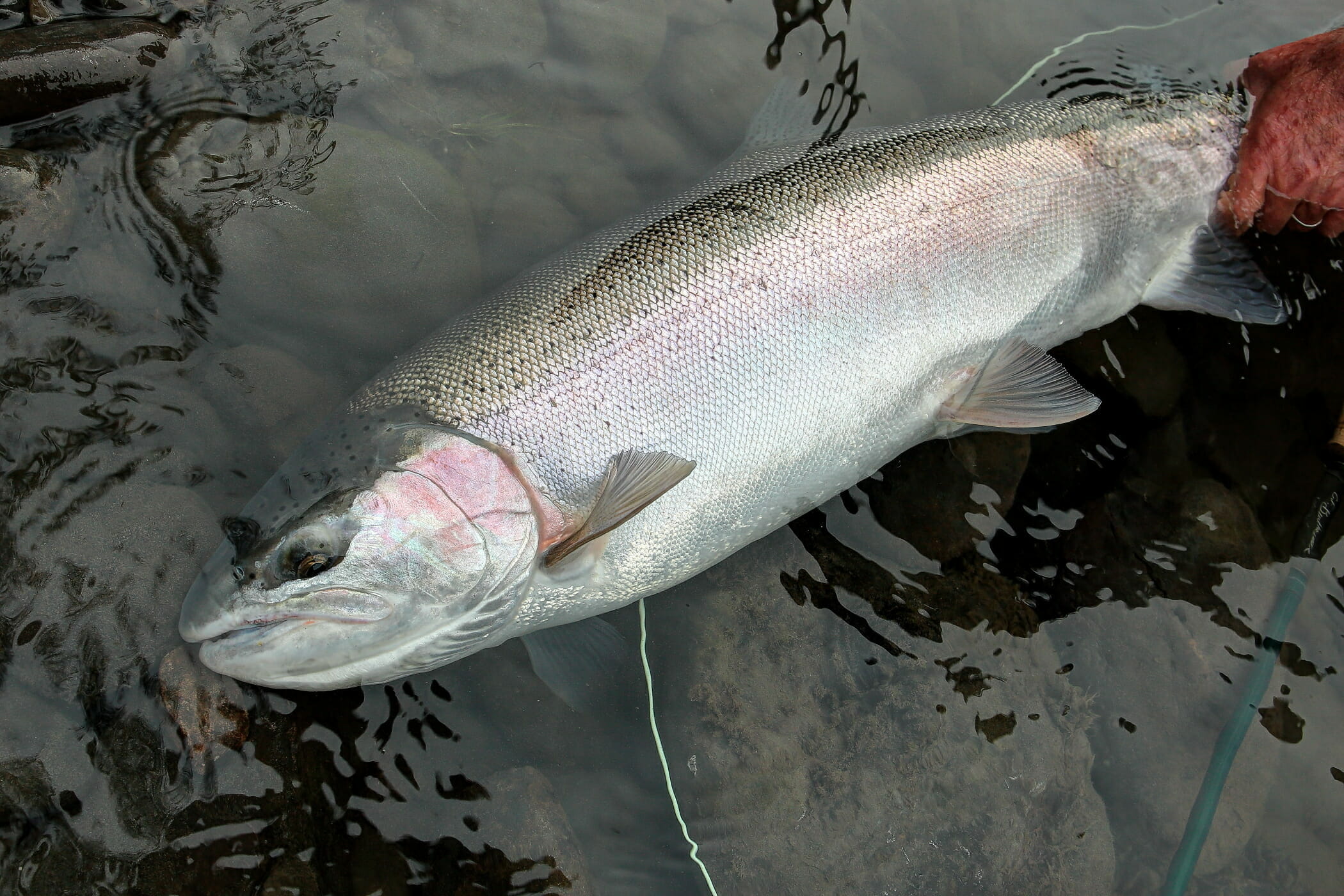Editor’s note: The following was delivered today to Govs. Kate Brown (Ore.), Steve Bullock (Mont.), Jay Inslee (Wash.) and Brad Little (Idaho) from a coalition power companies, conservation groups, the transportation sector and community utility coops.
Feb. 24, 2020
Dear Governors Brown, Bullock, Inslee and Little:
The debate over the management and impacts of the Columbia Basin’s federal dams has reached an inflection point.
With the pending release of the Columbia River System Operations Environmental Impact Statement (EIS), there is an opportunity to use the EIS as a springboard to collaboratively develop a long-term vision and strategic plan that will identify investments needed to recover and conserve salmon, steelhead and other fish and wildlife populations, ensure tribal needs are honored and sustained, and strengthen the electricity and agricultural services that communities depend upon from the river.
The region needs your leadership and that of the Northwest congressional delegation to foster a new dialogue with all sovereigns and constituents to develop this vision and strategic plan.
Over the last several months, we — a group of regional leaders from the conservation community, transportation and energy sectors — have agreed upon truths that we hope will form the foundation of a solution to this multifaceted and urgent challenge. What is most clear to all of us, and especially to those whose wellbeing and livelihoods are inextricably tied to the Columbia and Snake Rivers, is the following:
— Tribal identity, wellbeing and economies are reliant on access to abundant cultural resources historically provided by the Columbia and Snake Rivers.
— Many Columbia Basin salmon and steelhead runs remain at risk of extinction and other fish and wildlife are threatened. The wellbeing of salmon is critical to our entire Pacific Northwest ecosystem, from the inland forests to ocean species.
— Many communities, be it fishing communities on the coast or in central Idaho, depend on healthy and abundant salmon and steelhead.
— The region benefits from access to low-carbon, affordable and reliable electricity.
— To ensure a healthy and thriving farming community and economies, there must be sustainable infrastructure to deliver supplies inland and transport commodities down river.
While the pending EIS has the potential to be divisive, we are open to utilizing its release as an opportunity to forge a path forward and have a different dialogue. With your patience and support, we would like to continue and grow solutions-oriented conversations around enhancing the many values of the Columbia and Snake Rivers. We are committed to working together to find sustainable solutions for fish and wildlife, tribal treaty and trust resources, electricity, food production, transportation and recreation. Durable resolution of these issues will provide long-term value and certainty for the Northwest regional economy and its communities.
Along these lines we have identified the following shared goals we think will allow for solutions to this multifaceted challenge:
— Abundant and harvestable fish originating in the Columbia River Basin are recovered.
— The regional economy is enhanced, including the farming, transportation, fishing, recreation, port, and tribal enterprises in the Columbia Basin.
— The identity and cultural values of the Columbia Basin tribes are honored and federal treaty and trust responsibilities are fulfilled.
— Electric system reliability, affordability and decarbonization are bolstered for communities in the region.
We appreciate the hard work by federal agency staff on the forthcoming draft EIS. We know it is an enormous undertaking. However, the scope of the EIS alone is too narrow to solve the region’s complex, interconnected challenges. Consequently, there is an urgent need for stakeholders and sovereigns to forge an agreement on actions and investments leading to a durable, long-term solution that provides reasonable certainty to the objectives of all interests, including state policy priorities. We are hopeful that information and analysis in the draft EIS will be useful in that effort.
If we respect our differences and direct our energy toward identifying the strategic investments needed to meet our shared vision and goals for the Pacific Northwest, we can build a comprehensive regional plan and investment package that will be supported by the region’s sovereign leaders, including the Northwest congressional delegation. Over the next several months, we want to use our voices in leadership positions to bring additional key parties to the table to help envision what next steps could look like on this inspiring mission.
It is clear that there is an urgent need for the region and all of us whose wellbeing is tied to the Columbia and Snake Rivers to come together to identify the actions and investments needed to recover harvestable salmon and steelhead populations, conserve other fish and wildlife, honor and protect tribal needs and way of life, and strengthen the electricity and agricultural services that communities rely on. A well-designed regional strategic vision and plan that moves all interests forward together is the way these interconnected challenges will be solved.
We thank you for all you have recently done to foster dialogue and engage communities across the region. We believe it is timely and important for you and the congressional delegation to further support and help advance a solutions-based conversation. We now call on you at this defining moment to help us push further and build a legacy for the region that will serve many generations.
In cooperation,
K David Hagen, General Manager, Clearwater Power Company
Frank Lawson, General Manager, Eugene Water & Electric Board
Mark Johnson, General Manager, Flathead Electric Cooperative
Bear Prairie, General Manager, Idaho Falls Power
Chad V. Jensen, CEO, Inland Power & Light
Giulia Good Stefani, Senior Attorney, Natural Resources Defense Council
Nancy Hirsh, Executive Director, NW Energy Coalition
Wendy Gerlitz, Policy Director, NW Energy Coalition
Roger Gray, President and CEO, PNGC Power
David Doeringsfeld, General Manager, Port of Lewiston
Joseph Bogaard, Executive Director, Save Our Wild Salmon Coalition
Debra J. Smith, General Manager/CEO, Seattle City Light
Bill Arthur, Chair, Snake/Columbia River Salmon Campaign, Sierra Club
John Haarlow, General Manager, Snohomish County Public Utility District #1
Chris Robinson, General Manager & Superintendent, Tacoma Power
Rob Masonis, Vice President for Western Conservation, Trout Unlimited
Joe Lukas, General Manager, Western Montana Electric Generating & Transmission Cooperative



